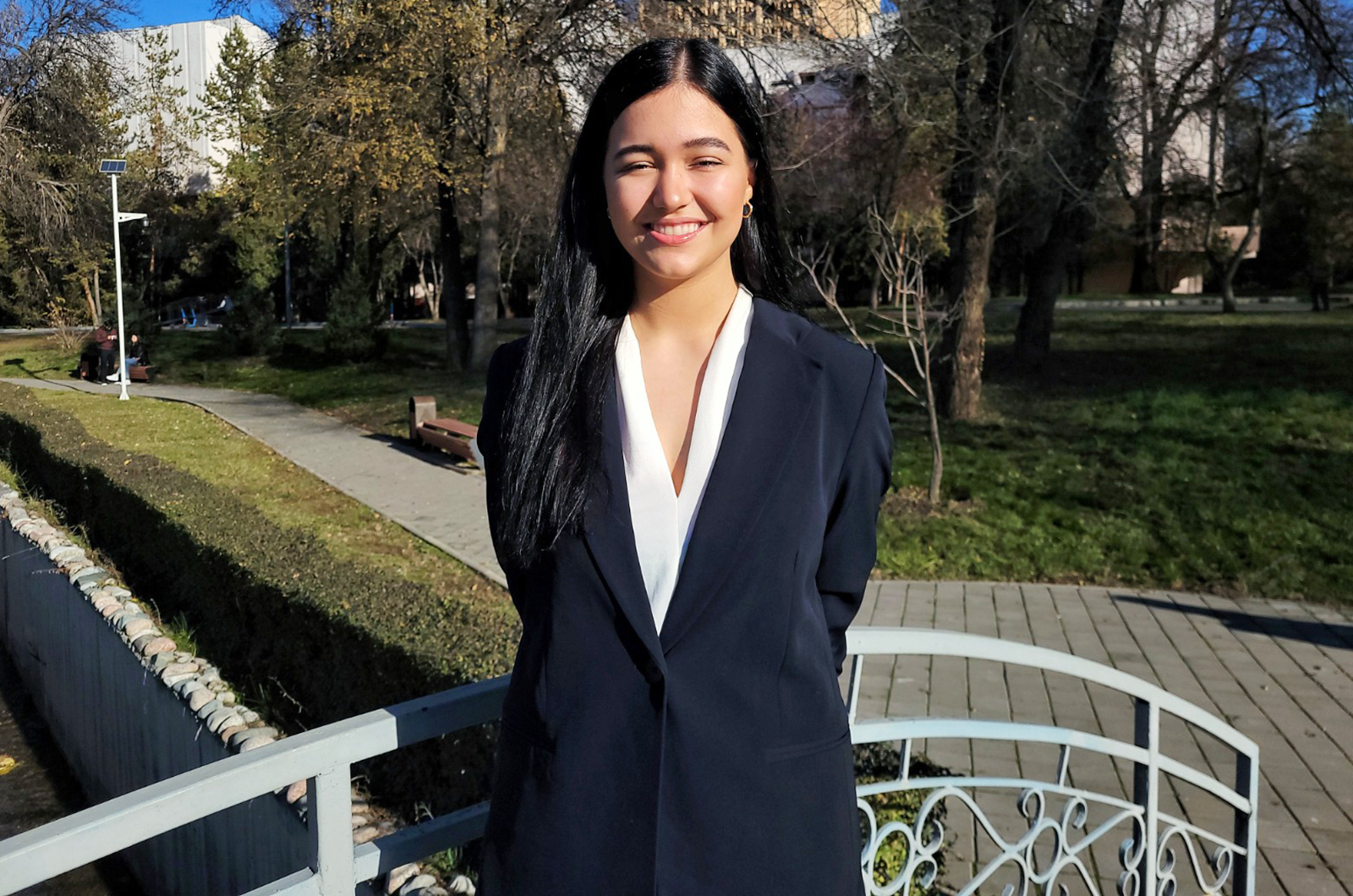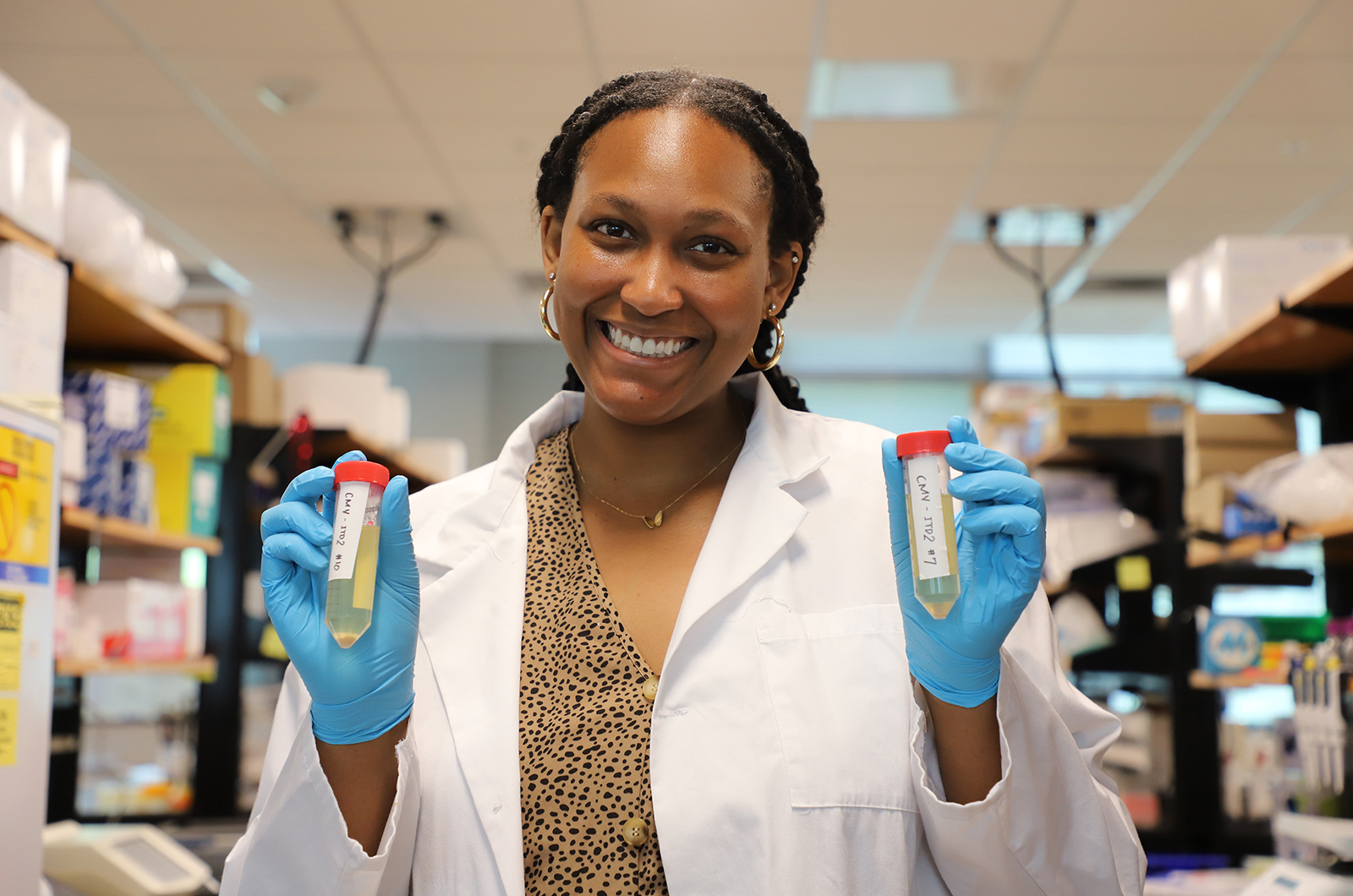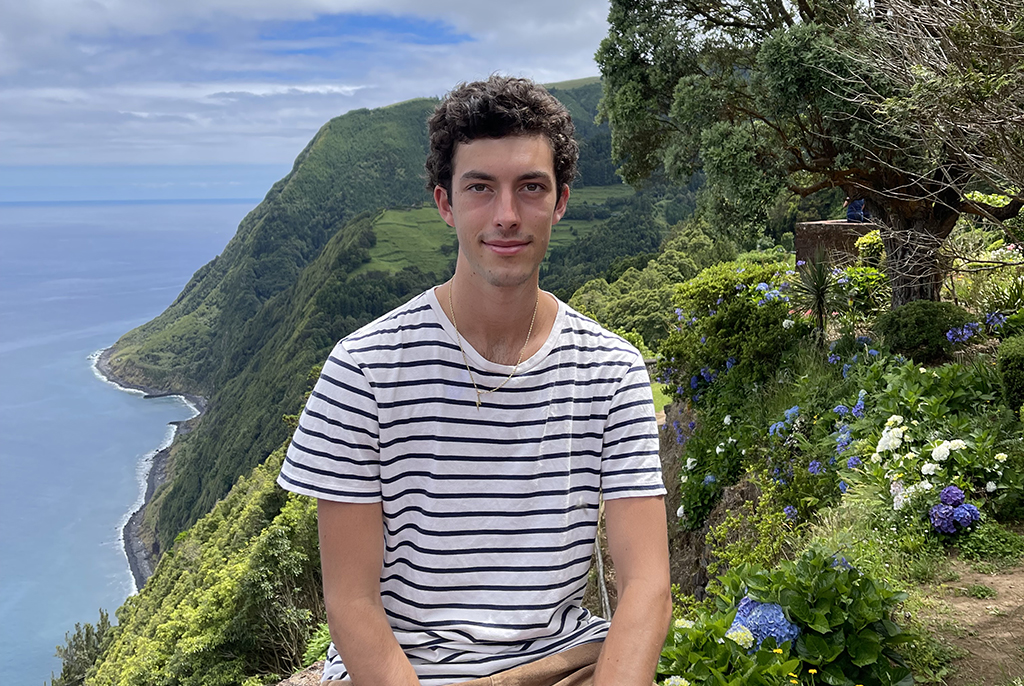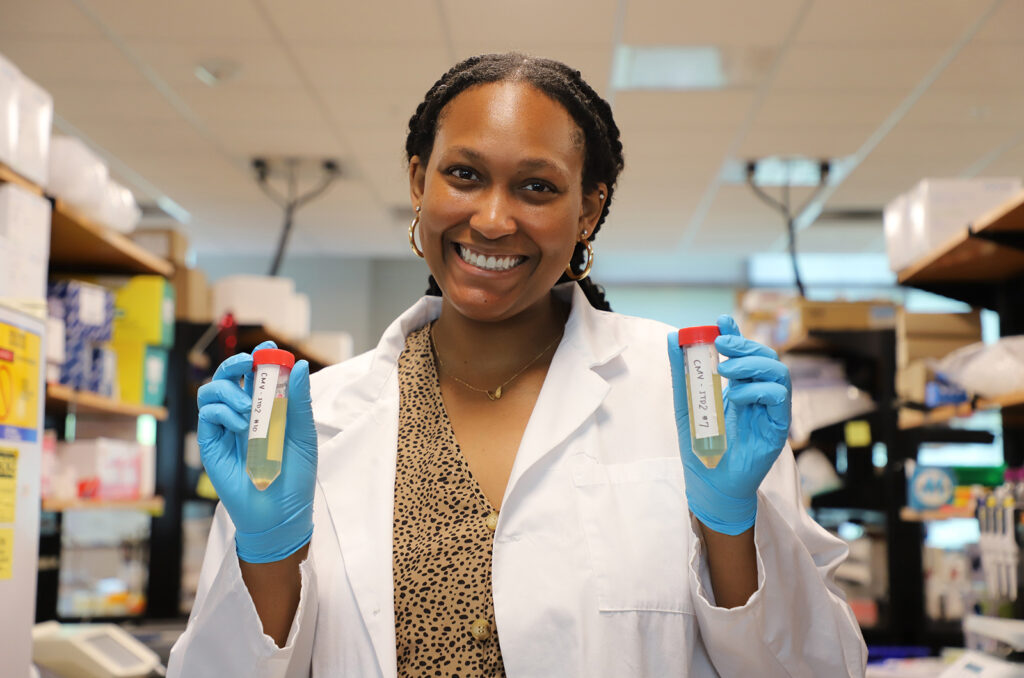
Autumn Hampton is a third-year CURO Honors Scholar double majoring in biochemistry and molecular biology and sociology. She shares in her Q&A, below, that “doing research is genuinely therapeutic for me.” Read more about Autumn below!
Q: What are your past and current research projects?
A: I got started in AP Seminar in 10th grade and AP Research in 11th grade and absolutely loved it so then I continued my research into my 12th grade year and did the Georgia science engineering fair. These experiences led me to apply to be a CURO Honors Scholars because I got into research and absolutely loved it.
My past research project was the effects of Benzophenone-2 and Oxybenzone (Benzophenone-3) on Hydra harbinensis. I isolated chemicals from sunscreen and used controlled and experimental groups of an organism with similar exoskeletons to coral to research the effects of sunscreen on coral reefs.
Now I am working on predicting the origin of pediatric glioblastomas using human embryonic stem cells. My project focuses on mutating bcor genes that will be inserted into plasmids and then into stem cells to see if the sequence matches that of a glioblastoma. We are trying to figure out which gene we have to mutate for the sequence to be similar to previously studied glioblastoma sequences in tumor cells. Through this, our goal is to work on cancer therapies.
Q: How did you get started with research, and how did you navigate finding a research mentor?
A: I started by finding various professors who did research that interested me and emailed them. One of the professors that said their lab was full referred me to another lab who was looking for undergrads to work for him. I emailed him and set up a meeting to talk about his research to see if it was a good fit for me. It was important to dress professionally and appropriately for the meeting. The meeting went really well, and I started researching under him in November.
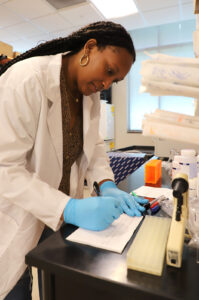 Q: What does a typical day of research look like for you?
Q: What does a typical day of research look like for you?
A: It varies from day to day. On Mondays, I participate in lab update meetings and my PI and grad mentor meetings. On Tuesdays to Fridays I am in the lab from anywhere from two to six hours, but it depends on the experiments that I am doing that day. In the lab, I maintain stem cell cultures and perform gel electrophoresis, PCR, qRT-PCR, gel extractions, genomic DNA extractions, RNA extractions, and cDNA synthesis.
Q: What have you gained and learned from your research experience?
A: Doing research is genuinely therapeutic for me. When I go to the lab, I am only focused on my experiments, so it is the one time where I can finally breathe and calm my nerves. I do not always know what goes on in the lab, but that is part of my learning experience. Nothing is perfect, as I have to run experiments time after time again to get things where they need to be. I learned that failure isn’t bad, it’s just a bump in the road, and I have started to apply that to my everyday life. Academically, I have learned a lot about bcor and DMRTA-2 genes and have been able to apply them towards my research.
Q: Do you have any advice for students hoping to get involved with research?
A: Even if you get a thousand no’s, there will be one person that is willing to take a risk on you and let you in their lab. Don’t take that experience for granted, because research is truly such a wonderful thing. The mentors want to teach you to the best of their ability and help you become successful in your research prospects, so take in as much as you can from your research.
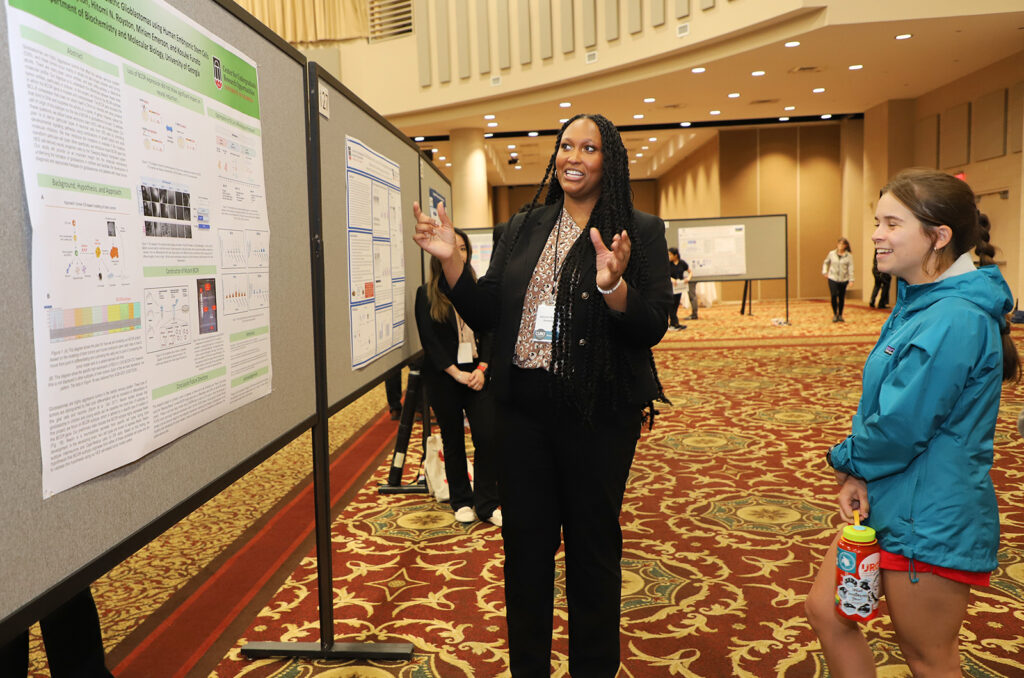
Autumn Hampton presents her research at the 2023 CURO Symposium.

